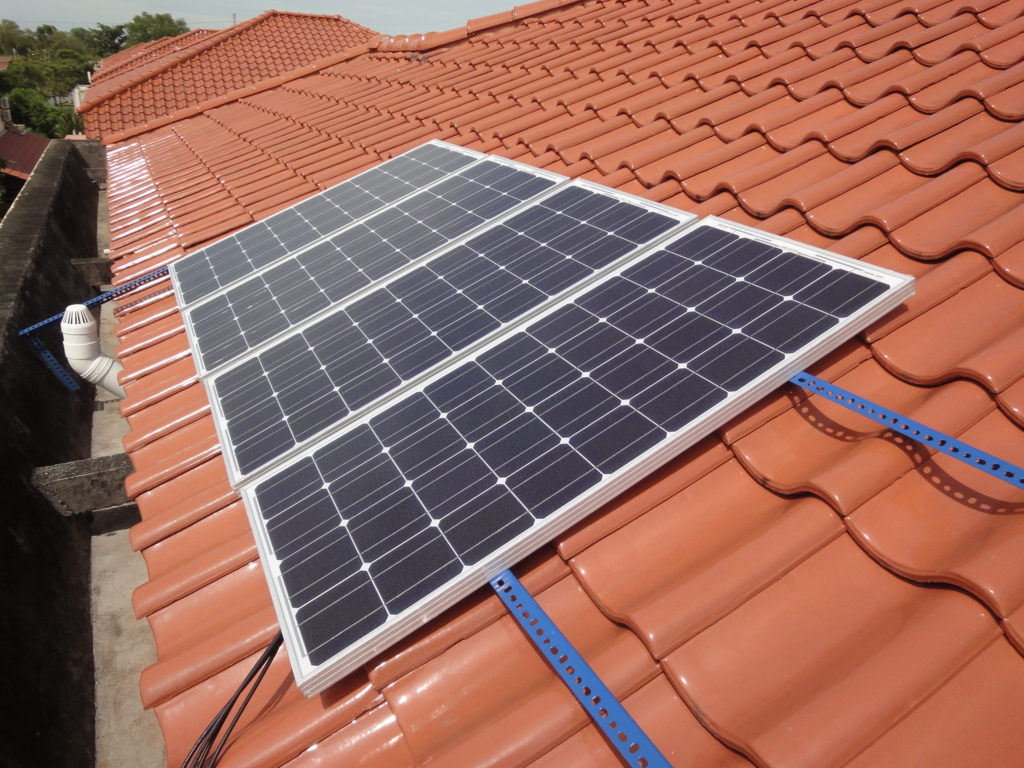If you’re the type of person who says they have no time or that switching off the lights won’t make a difference, you’re out of excuses! The United Nations Information Center for Brazil (UNIC Rio) just released a guide with you in mind!
The Lazy Person’s Guide to Saving the World offers 42 tips for small steps you can take to help us live in a more sustainable world.
Examples include: paying your bills online and cancelling paper bank statements to reduce deforestation. Turning off the lights – including in the living room, if the light from the TV or computer is bright enough – to help save energy. Buying products with less packaging.
And there’s more: use rainwater to clean the sidewalk and water the plants. Shop in secondhand stores – new products are not necessarily better.
The tips are split into categories: Sofa Superstar, Household Hero, and Neighborhood Nice Guy. The category headings indicate to the level of involvement required and the difficulty of the behavioral change suggested.
“This guide reminds us that human rights have to be exercised each day, by everyone of us, and that we can also make a difference. Human rights do not pertain only to political or civil issues, but also to economic, social and cultural ones, and increasingly to the environment,” explains Maurizio Giuliano, director of UNIC Rio.
The goal of The Lazy Person’s Guide to Saving the World is to help us reach the Sustainable Development Goals (SDG) of the 2030 Agenda for Sustainable Development, which were determined by the UN’s member countries, in the hopes of ending economic and social inequality around the world, and promoting a sustainable future for everyone.
And this change starts with you! Honestly. Every human being on Earth, even the most indifferent and lazy, is part of the solution. Fortunately, there are some really easy things that we can incorporate into our routine that, if done by all, can make a big difference.
Check out the tips from The Lazy Person’s Guide to Saving the World below.

LEVEL 1: SOFA SUPERSTAR
Things you can do from the couch:
- Save electricity by connecting appliances to a power strip and turning them off completely when they’re not in use, including the computer.
- Cancel paper bank statements and pay your bills online or on your phone. Without paper, there is no need to cut down forests.
- Share, don’t just like. If you see an interesting post on social media about women’s rights or climate change, for example, share it so other people in your network can see it too.
- Speak up! Ask local and national authorities to get involved in initiatives that help people and the planet. You can also express your support for the Paris Climate Agreement and ask your country to ratify it or sign it if it hasn’t yet.
- Don’t print. Saw something online that you need to remember? Write it down on a notebook or, better yet, on a digital post-it note and save paper.
- Turn off the lights. Your TV or computer screen provides a cosy glow, so turn off other lights if you don’t need them.
- Do a little research online and buy from businesses that you know have sustainable practices and don’t harm the environment.
- Report online bullies. If you see abuse in comments on social networks or chat rooms, report the user.
- Stay informed. Follow local news and stay in touch with the Global Goals online or on social media through @GlobalGoalsUN.
- Tell us about your actions for reaching the global goals by using the hashtag #globalgoals on social networks.
- Offset your carbon emissions! You can calculate your carbon footprint and buy climate credit from Climate Neutral Now. This way you can help reduce global emissions faster.

One of the tips is to freeze fresh produce and leftovers if you won’t have time to eat them before they go bad (Liz West/Flickr)
LEVEL 2 – HOUSEHOLD HERO
Things you can do at home:
- Air dry. Let your hair and clothes dry naturally rather than using a machine. If you are going to wash your clothes, make sure the machine is filled to full capacity.
- Take quick showers. Bathtubs require more gallons of water than a 5 to 10 minute shower.
- Eat less meat, fish and poultry. More resources go into supplying meat than plants.
- Freeze fresh produce and leftovers if you won’t have time to eat them before they spoil. You can also do this with takeout meals if you know you won’t eat it the next day. You will save food and money.
- Composting food scraps can reduce can reduce climate impact while also recycling nutrients.
- Recycling paper, plastic, glass and aluminum can keep landfills from growing.
- Buy goods with minimal packaging.
- Avoid preheating your oven. Unless you need a precise cooking temperature, start heating up your food as soon as you turn on the oven.
- Plug air leaks in windows and doors to increase energy efficiency.
- Adjust your thermostat – it’s what regulates energy consumption by your air conditioner and heater.
- Replace old appliances with energy efficient models and light bulbs.
- If possible, install solar panels in your home. This will also lower your electricity bill!
- Buy a rug. Carpets and rugs help keep your house warm and lower your heater’s energy use.
- Don’t rinse. If you use a dishwasher, don’t rinse your dishes before running the machine.
- Choose a better diaper option. Swaddle your baby in cloth diapers or a new, environmentally responsible disposable brand.
- Reuse rainwater to wash the sidewalk and water your plants.
- Use matches. They don’t require petroleum, unlike plastic gas-filled lighters.

Solar panels help save energy and money (Elliot Brown/Flickr)
LEVEL 3 – NEIGHBORHOOD NICE GUY
Things you can outside your home:
- Shop local. Supporting neighborhood businesses keeps people employed and helps prevent trucks from travelling long distances.
- Shop Smart – plan your meals, use shopping lists and avoid impulse purchases. Don’t surrender to marketing gimmicks that lead you to buy more food than you need, especially perishable goods. Although these may be less expensive per ounce, these food items can become more expensive if they go to waste.
- Buy funny fruit and vegetables – many fruits and vegetables are thrown out because their size, shape, or color are not “right”. Buying these perfectly good funny fruit, at the farmer’s market or elsewhere, utilizes food that might otherwise go to waste.
- When you go to a restaurant and are ordering seafood always ask: “Do you serve sustainable seafood?” Let your favourite businesses know that ocean-friendly seafood is on your shopping list.
- Buy only sustainable seafood. There are many apps now, like The Seafood Watch App, that let you know what is safe to buy.
- Bike, walk or take public transport. Save the car trips for when you’ve got a big group.
- Use a refillable water bottle and coffee cup. Cut down on waste and maybe even save money at the coffee shop.
- Bring your own bag when you shop. Pass on the plastic bag and start carrying your own reusable tote bags.
- Take fewer napkins. You don’t need a handful of napkins to eat your takeout. Take just what you need.
- Shop vintage. Brand-new isn’t necessarily best. See what you can repurpose from second-hand shops.
- Maintain your car. A well-tuned car will emit fewer toxic fumes.
- Donate what you don’t use. Local charities will give your gently used clothes, books and furniture a new life.
- Vaccinate yourself and your kids. Protecting your family from disease also aids public health.
- Take advantage of your right to elect the leaders in your country and local community.




